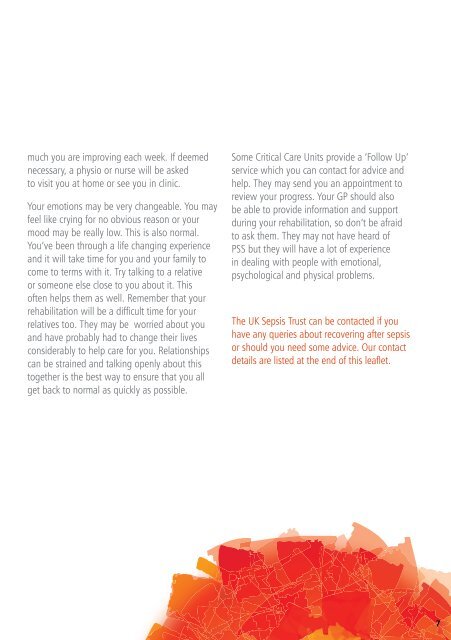SEPSIS Survivors Information
Sepsis-Survivors
Sepsis-Survivors
Create successful ePaper yourself
Turn your PDF publications into a flip-book with our unique Google optimized e-Paper software.
much you are improving each week. If deemed<br />
necessary, a physio or nurse will be asked<br />
to visit you at home or see you in clinic.<br />
Your emotions may be very changeable. You may<br />
feel like crying for no obvious reason or your<br />
mood may be really low. This is also normal.<br />
You’ve been through a life changing experience<br />
and it will take time for you and your family to<br />
come to terms with it. Try talking to a relative<br />
or someone else close to you about it. This<br />
often helps them as well. Remember that your<br />
rehabilitation will be a difficult time for your<br />
relatives too. They may be worried about you<br />
and have probably had to change their lives<br />
considerably to help care for you. Relationships<br />
can be strained and talking openly about this<br />
together is the best way to ensure that you all<br />
get back to normal as quickly as possible.<br />
Some Critical Care Units provide a ‘Follow Up’<br />
service which you can contact for advice and<br />
help. They may send you an appointment to<br />
review your progress. Your GP should also<br />
be able to provide information and support<br />
during your rehabilitation, so don’t be afraid<br />
to ask them. They may not have heard of<br />
PSS but they will have a lot of experience<br />
in dealing with people with emotional,<br />
psychological and physical problems.<br />
The UK Sepsis Trust can be contacted if you<br />
have any queries about recovering after sepsis<br />
or should you need some advice. Our contact<br />
details are listed at the end of this leaflet.<br />
7


